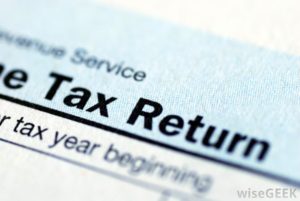Let’s revisit an issue that seems to have re-entered the debate over Donald J. Trump’s presidential candidacy.
Tax returns.
The Democrats’ vice-presidential nominee, Tim Kaine, brought the issue up again Wednesday night while accepting his party’s nomination. He asked out loud and in front of the nation why the GOP nominee won’t follow custom and release his tax returns.
He wondered — again out loud — whether Trump is hiding anything from the public whose votes he is seeking.
There’s no law requiring presidential and vice-presidential nominees to reveal their tax returns to the public. It has become a custom since the 1976 election between President Ford and former Georgia Gov. Jimmy Carter.
For four decades, candidates have released this information for public review.
Kaine and others have wondered many things about Trump’s personal financial information.
* Is he as rich as he says he is? I mean, he boasts constantly about his vast wealth.
* Is he giving sufficient amounts of his income to charity?
* Is he — as Sen. Kaine wondered — paying his “fair share of taxes”?
* Are there some foreign investments that need careful scrutiny? Hasn’t the candidate vowed to “put America first”?
* Does the real estate mogul have some connection with Russia, which has become a serious discussion point in recent days?
Trump has said he can’t release his returns because of an on-going audit. Internal Revenue Service officials say an audit does not preclude someone from releasing his or her returns.
Who’s lying here? I tend to believe the IRS version of what’s allowed and what is not.
Trump’s campaign is based in large part on his business acumen. He says he wants to do for the country what he’s done in private business. If that’s his major selling point, well, it seems to me that the public has a right to examine precisely what he has done in his business life.
The public also has the right to determine whether the income he has earned and the taxes he has paid match up the way they should — and must — for all the rest of us.
The nominee has said he’s “on your side.” Let’s see for ourselves.

Please stipulate for the moment that Trump, as an “outlier”, is not the topic here. I’d like to comment on the broader question about “disclosure”.
If any candidate said “none of your business” to any questions about the candidates finances, I would respect and applaud that statement. As it is, the nature of running, where the most irrational, distrusting, and cynical voter’s ballot counts the same as anyone’s, compels a less-than-candid answer why the information will not be submitted (even Trump is not that candid).
At what point does the “the public’s right to know” a candidate’s private finances trump her privacy Rights?”
This, of course, uses two different senses of “right” – the small-r latter is explicitly enumerated in the law (and, to remind those ignorant of human history, implicit in our political culture).
The problem with most journalists is that they hammer at the Big-R Rights by intoning small-r rights. It’s no small irony that journalists abuse their writerly Rights to erode the others.
As for “customary” disclosures – why does 40-years of supposed financial “transparency” override the previous 60-odd years (back to 1913)?
I hope that Trump leave his hole cards turned down. There’s little hope other candidates will do the same.
You asked when the public’s right to know trumps someone’s right of privacy … well, that moment arrives when someone enters the public arena and campaigns for a job that will help determine the public’s own tax burden. Thus, if Trump wants to become president, it is imperative that he share with the public whether he’s meeting the same obligations he would demand of the rest of us.
(2nd draft)
So far candidate Trump has resisted calls for his tax returns. Journalists are fond of the notion (they like to tell us) that “the public has a right to know” about such things. Those with some small knowledge point out that is has been “customary” to give in since Ford vs. Carter in 1976.
Let’s stipulate for the moment that Trump is not the topic here. I’d like to comment on the broader question about “disclosure”.
If any candidate said “none of your business” to any questions about the candidates finances, I would respect and applaud that statement. As it is, the nature of running compels a less-than-candid answer – after all, the most irrational, distrusting, and cynical voter’s ballot counts the same as anyone’s.
Even Trump is not that candid.
As it is nearly all candidates submit the paper – and need not “lie” about why such private matters are private.
At what point does the “the public’s right to know” a candidate’s private finances trump her privacy Rights?”
This, of course, uses two different senses of “right” – Big-R Rights are explicitly enumerated in the law (and, to remind those ignorant of human history, implicit in our political culture).
The problem with most journalists is that they hammer at the Big-R Rights by intoning small-r rights. It’s no small irony that journalists abuse their writerly Rights to erode the others.
As for “customary” disclosures – why does 40-years of supposed financial “transparency” override the previous 60-odd years (back to 1913)?
I hope that Trump leave his hole cards turned down. There’s little hope other candidates will do the same.